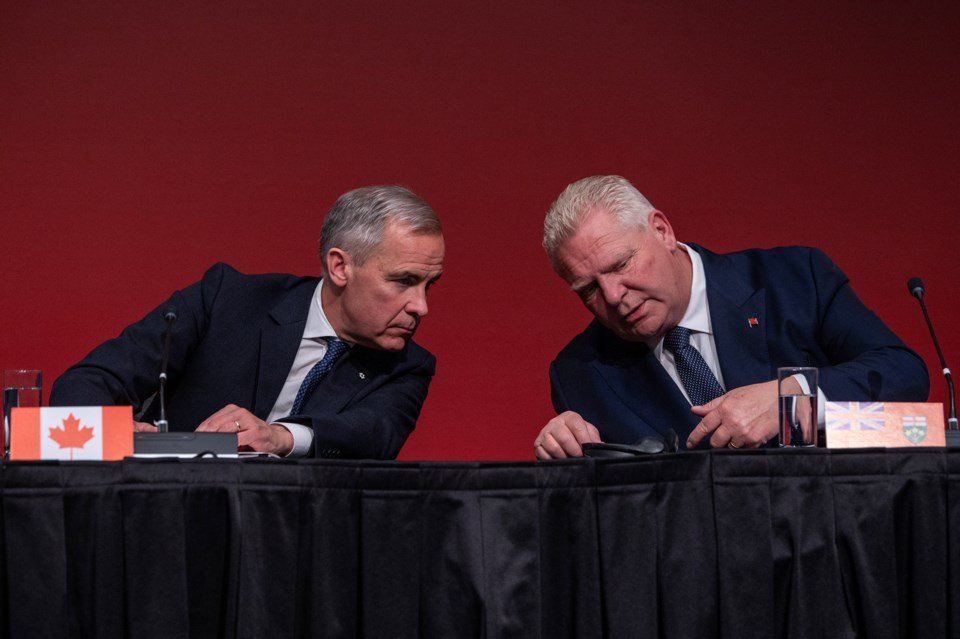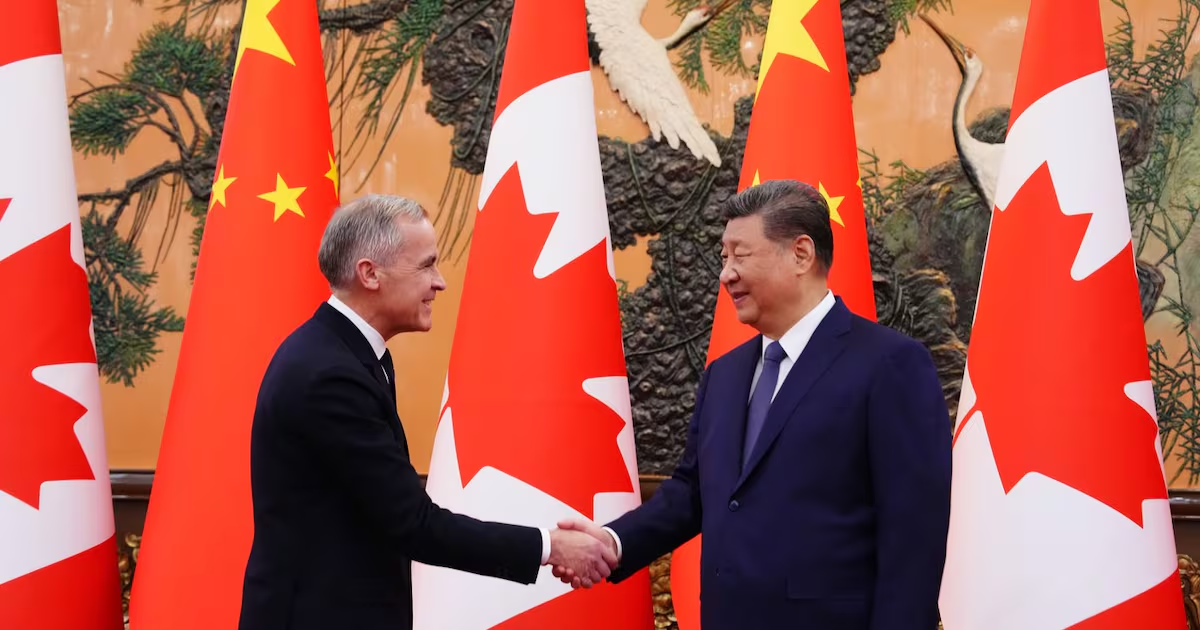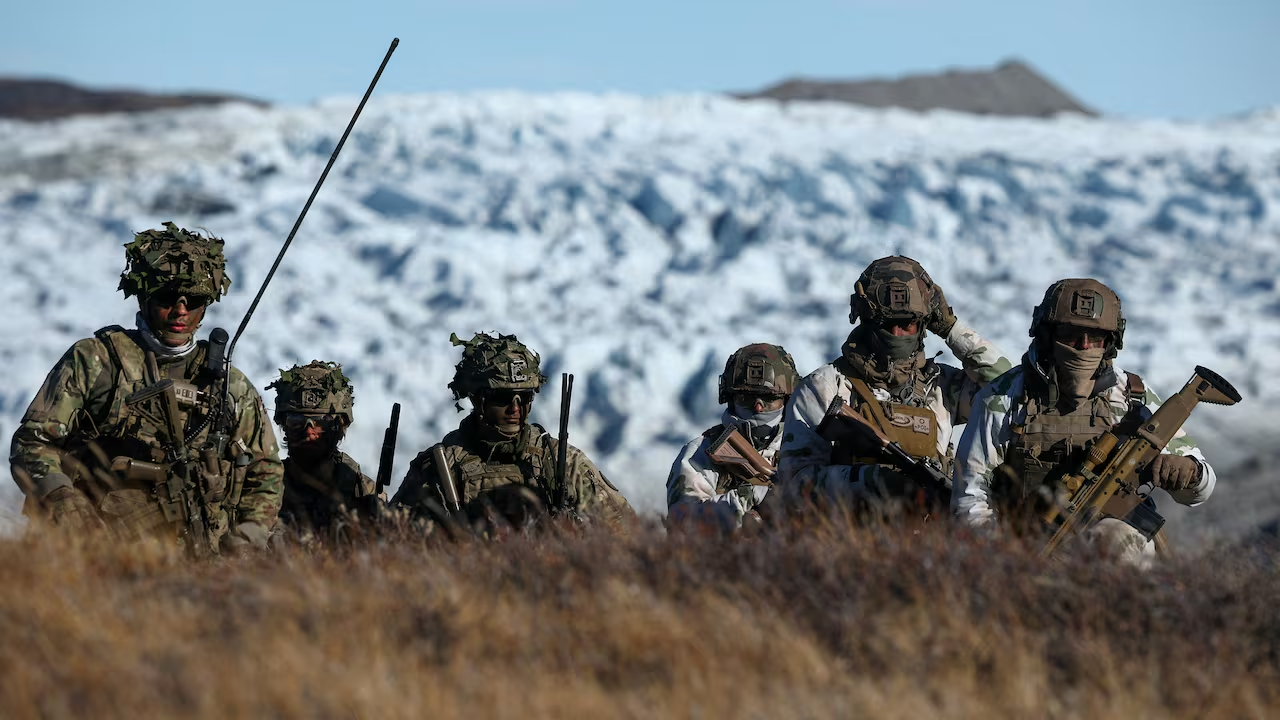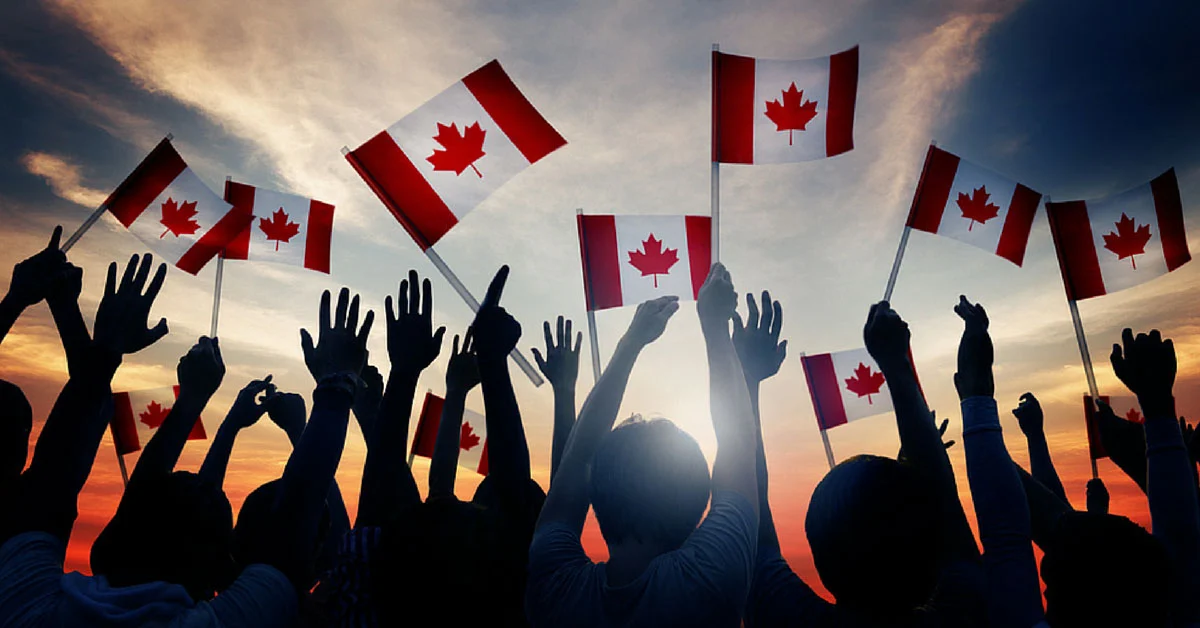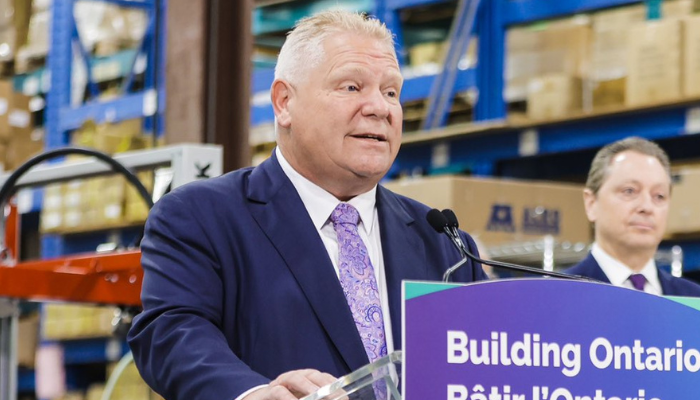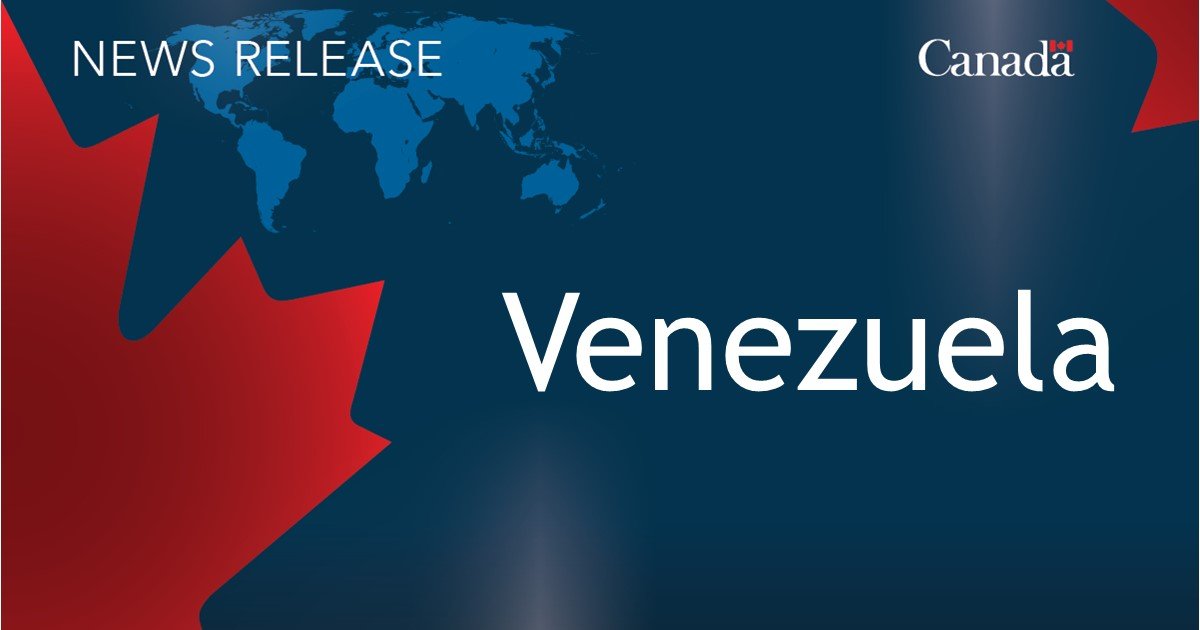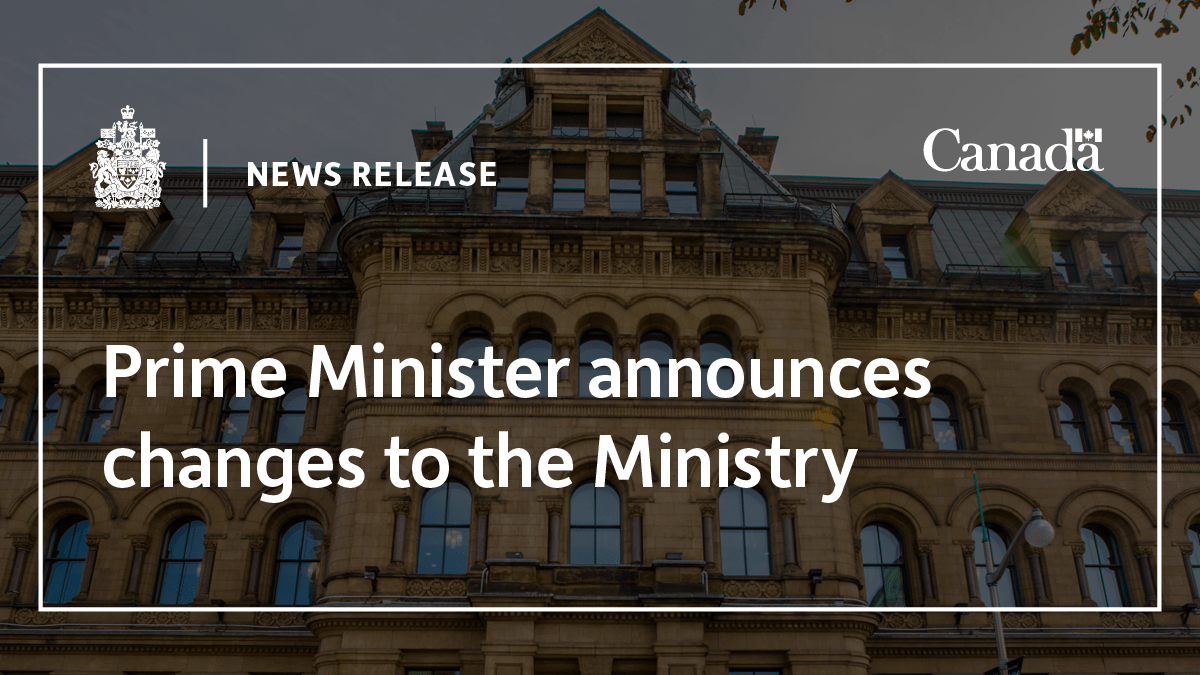
Today, Prime Minister Mark Carney announced the members of Canada’s new Ministry, a dynamic and focused team tasked with delivering on the ambitious mandate given by Canadians in the recent election. With a clear directive to redefine Canada’s economic and security relationship with the United States, strengthen the economy, reduce the cost of living, and enhance community safety, this Cabinet is poised to act with urgency and determination. Below, we dive into the details of the new Ministry, its priorities, and what this means for Canada’s future.
A Mandate for Change: Building a Stronger, United Canada
Canadians have entrusted this government with a bold vision: to create a resilient, high-wage economy capable of withstanding global challenges while fostering unity across provinces, territories, and Indigenous communities. The new Ministry is designed to catalyze investment, drive nation-building initiatives, and position Canada as the strongest economy in the G7.
Prime Minister Carney emphasized collaboration as a cornerstone of this government’s approach. The Cabinet will work closely with provincial and territorial governments, as well as Indigenous Peoples, to advance transformative investments that support economic growth, job creation, and affordability. From tackling climate change to enhancing national security, this team is ready to address Canada’s most pressing challenges head-on.
Meet Canada’s New Cabinet: A Team for the Future
The newly appointed Cabinet comprises 31 ministers, each bringing expertise and a commitment to delivering results. Below is the full list of Cabinet members and their portfolios:
-
Shafqat Ali – President of the Treasury Board
-
Rebecca Alty – Minister of Crown-Indigenous Relations
-
Anita Anand – Minister of Foreign Affairs
-
Gary Anandasangaree – Minister of Public Safety
-
François-Philippe Champagne – Minister of Finance and National Revenue
-
Rebecca Chartrand – Minister of Northern and Arctic Affairs and Minister responsible for the Canadian Northern Economic Development Agency
-
Julie Dabrusin – Minister of Environment and Climate Change
-
Sean Fraser – Minister of Justice and Attorney General of Canada and Minister responsible for the Atlantic Canada Opportunities Agency
-
Chrystia Freeland – Minister of Transport and Internal Trade
-
Steven Guilbeault – Minister of Canadian Identity and Culture and Minister responsible for Official Languages
-
Mandy Gull-Masty – Minister of Indigenous Services
-
Patty Hajdu – Minister of Jobs and Families and Minister responsible for the Federal Economic Development Agency for Northern Ontario
-
Tim Hodgson – Minister of Energy and Natural Resources
-
Mélanie Joly – Minister of Industry and Minister responsible for Canada Economic Development for Quebec Regions
-
Dominic LeBlanc – President of the King’s Privy Council for Canada and Minister responsible for Canada-U.S. Trade, Intergovernmental Affairs, and One Canadian Economy
-
Joël Lightbound – Minister of Government Transformation, Public Works, and Procurement
-
Heath MacDonald – Minister of Agriculture and Agri-Food
-
Steven MacKinnon – Leader of the Government in the House of Commons
-
David J. McGuinty – Minister of National Defence
-
Jill McKnight – Minister of Veterans Affairs and Associate Minister of National Defence
-
Lena Metlege Diab – Minister of Immigration, Refugees, and Citizenship
-
Marjorie Michel – Minister of Health
-
Eleanor Olszewski – Minister of Emergency Management and Community Resilience and Minister responsible for Prairies Economic Development Canada
-
Gregor Robertson – Minister of Housing and Infrastructure and Minister responsible for Pacific Economic Development Canada
-
Maninder Sidhu – Minister of International Trade
-
Evan Solomon – Minister of Artificial Intelligence and Digital Innovation and Minister responsible for the Federal Economic Development Agency for Southern Ontario
-
Joanne Thompson – Minister of Fisheries
-
Rechie Valdez – Minister of Women and Gender Equality and Secretary of State (Small Business and Tourism)
This diverse Cabinet reflects a balance of experience, regional representation, and forward-thinking leadership. Notably, the inclusion of portfolios like Artificial Intelligence and Digital Innovation (Evan Solomon) and Government Transformation (Joël Lightbound) signals a commitment to modernizing Canada’s economy and public services.
Secretaries of State: Supporting Key Priorities
To ensure focused leadership on critical issues, the Cabinet is supported by 10 Secretaries of State, each working within a minister’s portfolio to advance specific priorities. The appointees are:
-
Buckley Belanger – Secretary of State (Rural Development)
-
Stephen Fuhr – Secretary of State (Defence Procurement)
-
Anna Gainey – Secretary of State (Children and Youth)
-
Wayne Long – Secretary of State (Canada Revenue Agency and Financial Institutions)
-
Stephanie McLean – Secretary of State (Seniors)
-
Nathalie Provost – Secretary of State (Nature)
-
Ruby Sahota – Secretary of State (Combating Crime)
-
Randeep Sarai – Secretary of State (International Development)
-
Adam van Koeverden – Secretary of State (Sport)
-
John Zerucelli – Secretary of State (Labour)
These roles highlight the government’s emphasis on targeted action in areas like rural development, seniors’ support, and combating crime, ensuring that no priority is overlooked.
Key Priorities of the New Ministry
The new Ministry is built around four core pillars:
-
Redefining Canada-U.S. Relations
With Dominic LeBlanc leading Canada-U.S. Trade and Intergovernmental Affairs, the government aims to forge a robust economic and security partnership with the United States. This is critical in an era of global uncertainty and evolving trade dynamics. -
Building a Stronger Economy
Under the leadership of François-Philippe Champagne (Finance) and Mélanie Joly (Industry), the government will focus on attracting investment, creating high-paying jobs, and fostering innovation. The appointment of Evan Solomon as Minister of Artificial Intelligence and Digital Innovation underscores Canada’s ambition to lead in emerging technologies. -
Reducing the Cost of Living
Ministers like Patty Hajdu (Jobs and Families) and Rechie Valdez (Small Business and Tourism) will work to ease financial pressures on Canadians through targeted policies that support families, small businesses, and affordability. -
Keeping Communities Safe
Gary Anandasangaree (Public Safety) and David J. McGuinty (National Defence) will prioritize community safety and national security, while Eleanor Olszewski (Emergency Management) will strengthen Canada’s resilience to crises.
A Collaborative Approach to Nation-Building
Prime Minister Carney has made it clear that collaboration is at the heart of this government’s strategy. By working with provinces, territories, and Indigenous Peoples, the Ministry will advance transformative investments in infrastructure, housing, and clean energy. Ministers like Gregor Robertson (Housing and Infrastructure) and Tim Hodgson (Energy and Natural Resources) will play pivotal roles in these efforts.
The government’s commitment to Indigenous reconciliation is evident in the appointments of Rebecca Alty (Crown-Indigenous Relations), Mandy Gull-Masty (Indigenous Services), and Rebecca Chartrand (Northern and Arctic Affairs). These leaders will ensure that Indigenous voices are central to Canada’s economic and social progress.
What This Means for Canadians
For everyday Canadians, the new Ministry represents a promise of action and results. Whether it’s lowering living costs, creating jobs, or addressing climate change (led by Julie Dabrusin), this government is designed to deliver tangible improvements. The inclusion of ministers focused on veterans (Jill McKnight), health (Marjorie Michel), and immigration (Lena Metlege Diab) ensures that diverse needs are addressed.
The emphasis on digital innovation and government transformation also signals a modern, efficient approach to governance. Canadians can expect a government that is responsive, forward-thinking, and ready to tackle 21st-century challenges.
Looking Ahead: A Stronger Canada in the G7
As Canada navigates a complex global landscape, Prime Minister Mark Carney’s new Ministry is positioned to lead with vision and purpose. By prioritizing economic growth, affordability, safety, and collaboration, this government aims to build a Canada that is not only strong but also united and resilient.
Stay tuned for updates as the new Ministry begins its work. Canadians can expect bold policies, innovative solutions, and a renewed focus on building a brighter future for all.


